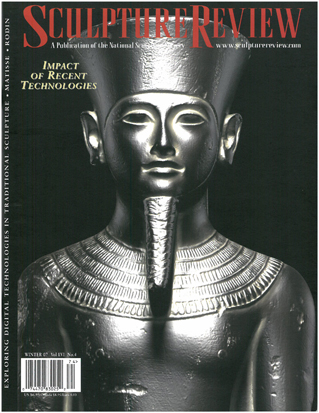
The Impact of Recent Technology
Features
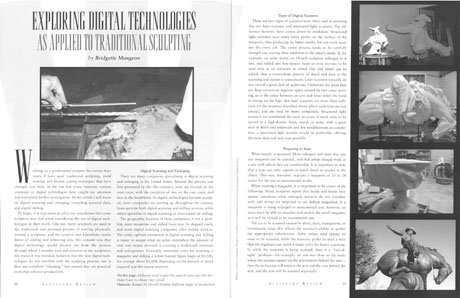
Working as a professional sculptor for twenty-four years, I have used traditional sculpting, mold making, and bronze casting techniques that have changed very little. In the last few years, however, various computer or digital technologies have caught my attention and warranted further investigation. In this article, I will focus on digital scanning and enlarging, compiling, scanned data, and digital milling.
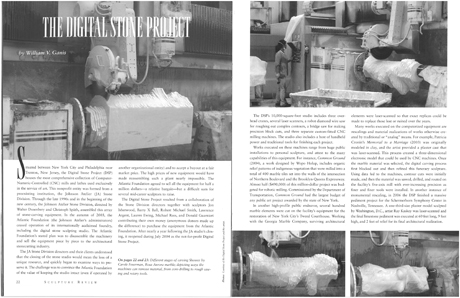
The article describes the Digital Stone Project, once the most comprehensive collection of Computer-Numeric-Controlled (CNC) mills and lathes used exclusively in the service of art.
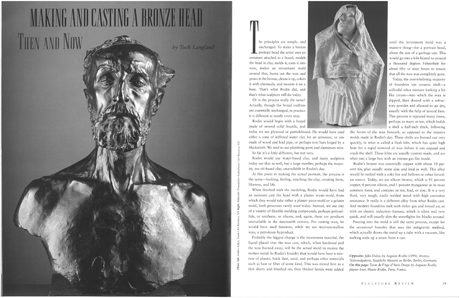
The principles are simple, and unchanged. To make a bronze portrait head the artist uses an armature attached to a board, models the head in clay, molds it, casts it into wax, makes an investment mold around that… That’s what Rodin did, and that’s what sculptors still do today. Or is the process really the same? Actually, though the broad outlines are essentially unchanged, in practice it is different at nearly every step.
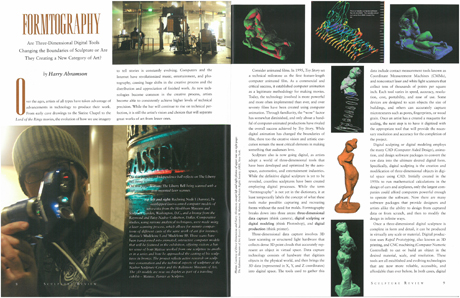
Are Three-Dimensional Digital Tools Changing the Boundaries of Sculpture or Are They Creating a New Category of Art?
